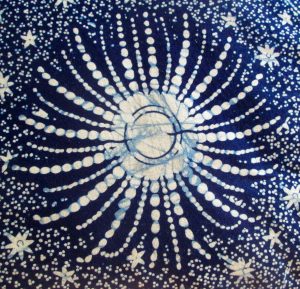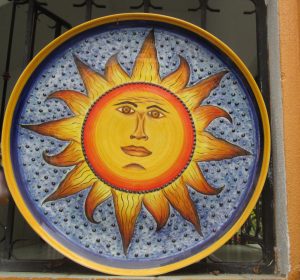The month of May here where I now live in Mexico is not as merry as it’s purported to be in jolly old England, for one. In fact, it’s more like the dog days of August in northern New Jersey, where I grew up.
I remember writhing in perspiration on the top bunk in the bedroom my sisters and I shared, complaining loudly that I couldn’t breathe because the air up there, close to the ceiling, was so hot and thick.
“You’ll live,” my matter-of-fact mother assured me. “September is just around the corner.”
I lived.
The month of May is the hottest month of the year here in San Miguel de Allende where I now live, with afternoon temperatures nearing 90 (F.), but it is not as hot as other places I’ve known. Like Lastoursville, Gabon, for example, where I served two years in the Peace Corps.
Lastoursville, a tiny town nestled in the thick rainforest of this Colorado-size African country, is two degrees off of the Equator. One hundred-degree temps and 100 percent humidity were the norm. Now that was hot. And humid. Walking felt like swimming.
As I wrote in my Peace Corps memoir, How to Cook a Crocodile: “Author Thurston Clarke, who served in the Peace Corps in Tunisia in the late ‘60s, spent three years traveling the earth at its midsection – a grueling 25,000-mile odyssey that spanned three continents—to write his fascinating book Equator. During his stay in Gabon, he reports he ‘felt like a small roast in a large microwave, cooked to the bone.’”
But even Gabon wasn’t as hot as Mali, West Africa, which borders the Sahara Desert, where I lived for nearly three years, from 1998 to 2001, after my Peace Corps service.

In Mali the sun, in a yearlong loop of endless summer, sizzles everything within its grasp, paralyzing living things with its inhumane heat. Every morning of la saison chaude (the hottest season, when daytime temps hold steady at about 115 degrees F.), as I wrote to my journal, dripping perspiration onto each page, I grappled with my personal discomfort with the heat. Such as in this entry:
“It’s pointless to complain about the weather. What good does it do? People here are so strong. The hardships they withstand, such as this amazing HEAT, are more than most Westerners could imagine. I admire the locals’ awesome strength.” (How to Make an African Quilt, p. 40.)
Still, I tell myself, I much prefer hot weather to cold, so the month of May here in San Miguel where I now live is my annual test of that resolve.

Most of the other gringos here choose this month to hit the road. They decide to travel north, to where the lovely, fragrant lilacs are now in bloom, and visit their families. For the entire month, if at all possible.
A few of us diehards remain. Such as my friend and neighbor Nancy, who grew up in hot-steamy Florida in the ‘50s. She learned at an early age how to beat the heat: Only venture outdoors in the cool of the early morning or close to sunset. In between, stay inside with the curtains drawn, in front of a fan.
Air conditioning, you ask? Well, no. Not for the vast majority of us. A few, I’m told, have had A.C. installed in their lavish homes here, in an effort to replicate their U.S. lifestyles in (I’m guessing) Texas. I don’t envy them.
Call me a glutton for punishment. I continue to take my walks in the park in the midday sun.
To paraphrase Sylivia Plath:
What better way to test taut fibre
Than against this onslaught
These casual blasts of heat
That wrestle with us like devils…
I can hear my mother’s voice in my head: “You’ll live.
“June is just around the corner.”
~ ~ ~
Good news for those of you who submitted a completed questionnaire to Retirement Voices: The authors received a sufficient number of submissions to proceed with their book project. Thank you for participating! You should be hearing back from them later this summer. (For more, go to: www.retirementvoices.com .)
